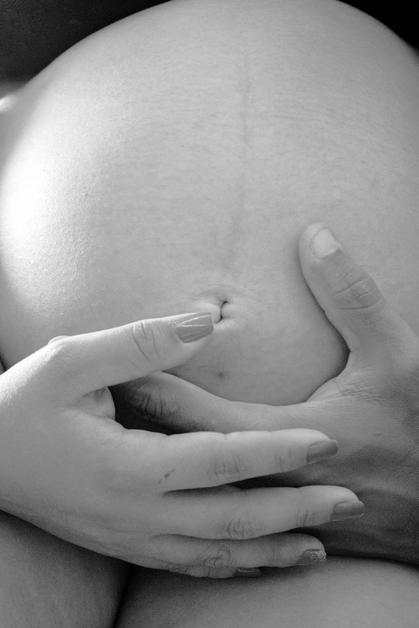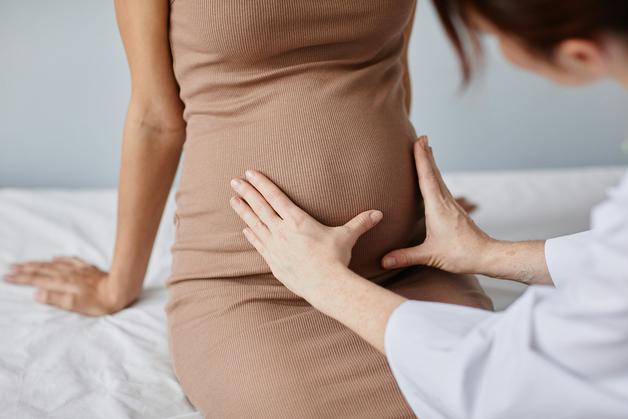As the end of pregnancy approaches, there’s a curious twist that leaves many expectant parents questioning every new sensation: diarrhea before labor. Why does this happen, and should it be a source of concern? Faced with uncertainty, you might find yourself doubling back on every internet search, hesitating before the next meal, and monitoring your body for signs both familiar and totally unexpected. It’s not simply about timing—it’s about feeling prepared and safe, understanding what your body is signaling, and knowing how to respond when your gut, quite literally, has a mind of its own.
Let’s unpack the full picture: the physiology, the risks, the emotional turbulence, and of course, the most up-to-date strategies to stay comfortable and informed. What causes diarrhea before labor? Can it hint labor is just hours away? Should you change your diet, or worry about dehydration? What is simply “normal” and what deserves investigation? Here is everything you need to know to anticipate, respond to, and manage this sometimes inconvenient, often misunderstood phenomenon.
Diarrhea Before Labor: Causes and Physiology
Hormonal Orchestra and the Gut’s Response
Why does diarrhea before labor catch so many by surprise? The physiological explanation is both mechanical and hormonal. In the last days of pregnancy, the production of prostaglandins—those multitasking chemical messengers—ramps up dramatically. Their primary task: soften the cervix to pave the way for birth. But prostaglandins also stimulate the smooth muscles lining the intestines, prompting more frequent and looser stools. Meanwhile, the decrease in progesterone (the hormone that slows digestion throughout pregnancy) releases its grip on your gastrointestinal system, shifting it into high gear.
This perfect hormonal storm isn’t just theory. Research links prostaglandin surges directly to pre-labor bowel changes. Pair this with the physical pressure exerted by baby’s descent into the pelvis, and it’s easy to see why your digestive rhythm changes so abruptly. One day: sluggish intestines and sluggish days. Suddenly: multiple urgent trips to the bathroom.
Psychological Catalysts and the Brain-Gut Connection
You might ask: is anxiety to blame? Indirectly, yes. Anticipation, nervousness, or stress around impending labor can set off what’s called the gut-brain axis. This intricate communication system lets emotions influence gastrointestinal activity. Elevated stress hormones (like cortisol) can intensify bowel sensitivity and increase peristalsis, resulting in—yes—diarrhea before labor.
Less Common Causes: When the Usual Explanation Doesn’t Fit
Is all pre-labor diarrhea hormonally driven? Not always. Occasionally, digestive infections, recent changes in medication, or flare-ups of chronic bowel conditions can mimic or worsen the scenario. These should be suspected if other symptoms (like fever, blood, or mucus in the stool, severe abdominal pain) come into play. Medical input is particularly important here.
Recognizing and Interpreting the Symptoms
What Does Pre-Labor Diarrhea Look Like?
Wondering if your symptoms are typical? Here’s what diarrhea before labor usually entails:
- Sudden onset of loose or watery stools
- More frequent trips to the bathroom, sometimes accompanied by mild abdominal cramps
- Appearance within hours—sometimes days—before labor begins
- Occasional overlap with other pre-labor signs: loss of the mucus plug, rhythmic contractions, or a sensation of “lightening” as baby drops lower
Warning Signs That Warrant Medical Attention
Certainly, not all diarrhea before labor should be brushed off. Be vigilant if you experience:
- High fever or chills
- Intense, unrelenting abdominal pain
- Persistent vomiting or inability to keep fluids down
- Blood or alarming amounts of mucus in stools
- Diarrhea that lasts longer than 24 hours without relief
These symptoms suggest something more than an ordinary pre-labor adjustment and justify a prompt consultation with your healthcare provider.
When Does It Usually Happen?
Many expectant parents wonder: is there a reliable pattern? Diarrhea before labor most often strikes in the last few days or hours preceding birth, though the timeline varies widely. Some women never experience it. Others notice changes up to a week before contractions begin, while some see no bowel changes whatsoever.
Risks and Focus on Hydration
Dehydration: How Real Is the Risk?
One word looms large: dehydration. Diarrhea before labor can speed up fluid loss, a situation complicated if labor itself starts before your body has had a chance to recover. Signals of dehydration include:
- Dry mouth or cracked lips
- Noticeably decreased urination
- Lightheadedness or unusual fatigue
- Intense thirst
Why worry about dehydration? Sufficient hydration is vital for uterine muscle function, fetal oxygenation, and maternal stamina during labor. If dehydration occurs, it can tip into electrolyte imbalances and increased maternal exhaustion.
Action plan:
- Drink 1.5 to 2 liters of water daily; more if fluid loss is pronounced.
- Oral rehydration solutions (available in pharmacies) quickly restore balance if symptoms intensify—safer and more effective than sugary drinks.
- Clear broths and diluted fruit juices may also help, but avoid caffeinated or very sweet beverages.
Maternal and Fetal Wellbeing
For most, diarrhea before labor is a harmless prelude to birth. However, if dehydration persists, there’s a potential—though rare—effect on uterine efficiency or, in extreme cases, on uteroplacental blood flow (the pathway supplying oxygen to baby). Address dehydration rapidly to prevent any chain reaction.
Management Strategies: What You Can Do
Diet: What to Choose, What to Skip
Your digestive system is sensitive now—choose foods wisely:
- Select gentle, binding options: white rice, boiled potatoes (peel optional), applesauce, ripe bananas, and toast. This classic BRAT diet can help firm stool consistency.
- Avoid raw vegetables, spicy or fatty foods, dairy, and unfamiliar ingredients.
- Culinary curiosity can wait—resist the temptation to try new dishes in the final days of pregnancy.
- Frequent, small meals reduce digestive workload compared to large portions.
Hydration Tactics
Water remains your best ally, but mild herbal teas (such as chamomile or fennel) serve as soothing alternatives. Curious for a home remedy? Even the water used to boil rice—or “rice water”—has a gentle binding effect and may soothe the digestive tract.
Comfort Measures for Digestive Upset
- Rest on your left side to relieve abdominal pressure.
- A hot water bottle or warm compress placed carefully over the abdomen can ease cramps.
- Employ relaxation or breathing techniques acquired during childbirth classes. Mindful breathing has a dual effect: it helps manage both anxiety and abdominal discomfort.
Medication: Caution First
Self-prescribing anti-diarrheals in late pregnancy is not recommended. Many over-the-counter remedies, like loperamide, are not suitable during this period. In exceptional situations, your healthcare provider may suggest tailored medication, but it remains the exception, not the rule.
Preventing Diarrhea Before Labor: Everyday Wisdom
Is it possible to reduce your risk? While some physiological processes are unstoppable, certain habits help keep your digestion in balance:
- Stick to foods you trust; now isn’t the time for experimentation.
- Maintain vigilant food hygiene: wash produce thoroughly, avoid raw fish, unpasteurized cheese, and undercooked meat.
- To ease a tendency toward constipation without triggering diarrhea, opt for soft fibers (think well-cooked carrots or fruit purees—not raw, fibrous produce).
- Regulate fluid intake throughout the day, rather than consuming large amounts in one sitting.
Emotions, Myths, and Reality Checks
The Emotional Rollercoaster
Labor approaches, and suddenly every twinge or trip to the bathroom becomes a source of guessing—and sometimes, of frustration. Questions swirl: Is this a sign? Should I be timing contractions yet? Will my baby be affected? The vulnerability is real, and so is the desire for reassurance. Opening conversations with your care provider or supportive family members offers comfort—and often, clarity.
Debunking Common Myths
- Myth: “Diarrhea before labor means birth is hours away.”
Fact: It can precede labor by hours, but also by days—or not happen at all before labor commences. - Myth: “It’s the body’s way of ‘cleaning’ out the intestines.”
Fact: The process is the result of hormone surges, not an internal cleansing initiative. - Myth: “All women have diarrhea before labor.”
Fact: While absolutely common, not every expectant mother will experience this symptom. Each experience is distinct.
Other Early Signs That Labor May Be Starting
As fascinating as digestive changes are, don’t rely solely on this one clue. Take into account:
- Loss of the mucus plug (sometimes tinged with blood)
- Regular, intensifying contractions that do not subside with rest
- Baby’s head “dropping” lower in your pelvis (”lightening”)
- A sensation or visible leak of amniotic fluid
- Heightened pelvic pressure or sudden loss of appetite
These signals, when taken together, provide a clearer overview of your body’s preparation for birth.
Preparing for Labor: Holistic Approaches
Being prepared isn’t solely about bags packed or birth plans printed. Emotional readiness counts too. Practice breathing or relaxation methods, clarify your wants with your birthing team, and prioritize rest. Keep nourishing snacks and plenty of liquids within reach.
Above all, trust your intuitive sense—reach out to professionals when something feels off or questions arise.
Key Takeaways
- Diarrhea before labor is a common, natural occurrence, and is overwhelmingly linked to hormonal and mechanical changes preparing your body for childbirth.
- In most cases, it is temporary, mild, and managed effectively with adequate hydration, rest, and dietary adjustments.
- The main risk to monitor is dehydration. Watch for warning signs, and don’t hesitate to connect with your healthcare provider for reassurance or advice.
- There’s no single timeline: some notice digestive changes days before labor, others only hours, and many never experience it at all.
- Emotional stress can amplify symptoms, but practical support, intentional relaxation, and evidence-based information go a long way.
- The myth that diarrhea before labor is a true countdown to birth is just that—a myth. Context, symptom clusters, and individual health matter more than one isolated sign.
- Reliable, judgment-free support is always close at hand. Explore tools like the Heloa app for custom advice and free child health questionnaires.
Staying informed, connected, and cared for—these are formidable allies as you move into the remarkable act of welcoming a new life.
Questions Parents Ask
Can diarrhea before labor be a sign of something other than labor starting?
Absolutely, experiencing diarrhea before labor is most often related to the body’s natural preparation for childbirth, but it can also be caused by other factors. For instance, a sudden change in your diet, mild stomach infections, or increased anxiety levels can affect your digestion. If the diarrhea is accompanied by symptoms such as a high fever, blood in the stool, or ongoing severe cramps, it could signal something apart from normal pre-labor changes. Don’t hesitate to reach out to a healthcare professional in these situations—they’re there to help you feel safe and supported.
Should I change my birthing plan if I have diarrhea before labor starts?
There’s generally no need to modify your birth plan solely due to diarrhea before labor. This symptom is usually a harmless, natural part of the body’s preparation for delivery. You can still choose the birth environment, techniques, or comfort measures you prefer. If you feel very weak, dehydrated, or ill, consider discussing with your maternity team for additional support. The most important thing is that you feel respected and comfortable with every choice you make—a flexible and understanding approach is always possible.
How can I distinguish between diarrhea caused by labor and digestive issues from something I ate?
It’s sometimes tricky to tell, and that’s perfectly understandable. Diarrhea linked to impending labor often appears alongside other signs, like mild cramping, loss of the mucus plug, or a feeling that your baby has dropped lower. Digestive upsets from food or infection may be more likely to bring nausea, vomiting, fever, or stomach pain without other labor clues. When in doubt or if you notice something out of the ordinary, consulting your healthcare provider offers gentle reassurance and the best advice. Trust your instincts and remember, no question is too small.










